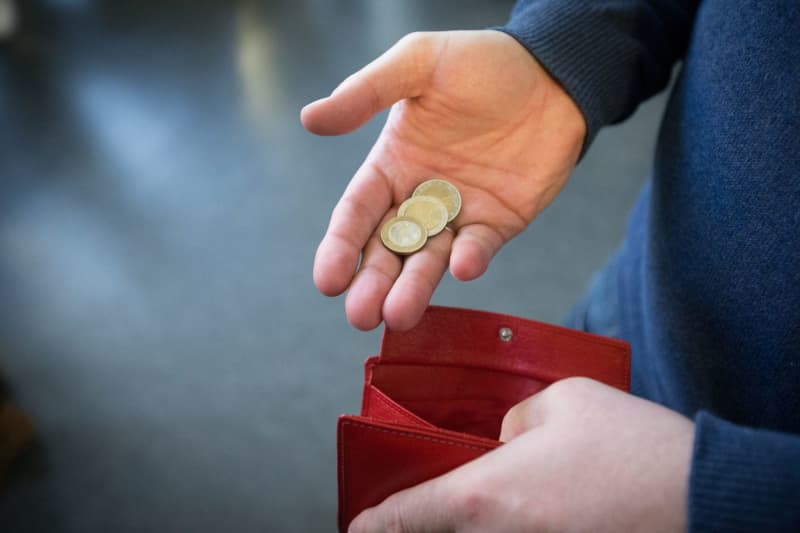Coins worth five euros are held over a red wallet in Paderborn. Eurozone countries on Thursday gave Bulgaria the green light to use the euro, with Sofia set to introduce the common currency in January 2026. Friso Gentsch/dpa
Eurozone countries on Thursday gave Bulgaria the green light to use the euro, with Sofia set to introduce the common currency in January 2026.
Bulgaria is set to become the 21st EU member state to use the euro after finance ministers of eurozone countries gave their approval to the European Commission and the European Central Bank (ECB).
The commission backed the move earlier this month, concluding that Bulgaria fulfils the necessary requirements to join the monetary union.
The criteria for joining include price stability, sound public finances and stable exchange rates.
Bulgaria has been a member of the EU since 2007 and had previously planned to replace its national currency, the lev, with the euro in 2024, but the adoption was postponed due to a comparatively high inflation rate of 9.5% at the time.
The commission recently said it expects an inflation rate of 3.6% for Bulgaria in the current year and 1.8% in 2026.
In Bulgaria, the possible introduction of the euro has been accompanied by fierce protests.
According to an opinion poll conducted by the Bulgarian Mjara institute in May, more than half of adults (54.9%) are against the introduction of the euro in 2026, while 34.4% are in favour of joining.
The next step is for the finance ministers of all EU countries to approve the plans before EU leaders discuss Bulgaria’s accession to the eurozone at the end of June.
Finally, after consulting the European Parliament and the ECB, the member states must adopt the necessary legal acts at finance minister level.
